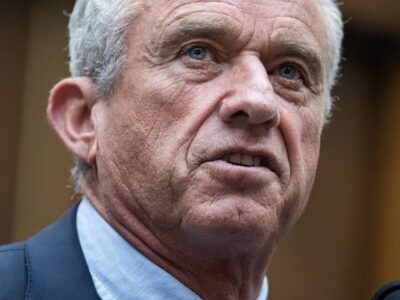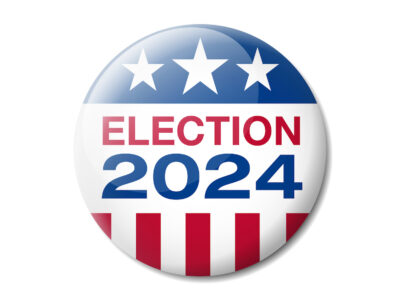Will the BP Oil Spill Change Public Policy?
 The oil spill catastrophe now engulfing the Gulf Coast brings home in incredibly vivid detail the ways in which human activity can damage the earth. This is in stark contrast to climate change, for example, where the changes caused by accumulating greenhouse gas emissions are hard to see and where actions today will only affect the climate many decades from now (Eric has previously blogged about the political difficulties raised by the fact that even with serious regulatory action to curb carbon emissions climate change will continue to occur because of past human activity.) The BP oil spill, by contrast, looks more similar to environmental harms of the 1960s and 1970s: the burning of the Cayahoga River; the 1969 oil spill off the coast of southern California; visibly dirty air in cities across the country but particularly in Los Angeles. Each of those catastrophic events contributed to large changes in public policy and ultimately to the passage of the Clean Water Act, the National Environmental Policy Act, and the Clean Air Act. The Exxon Valdes spill 20 years ago (see Rick’s post here) led to less dramatic policy responses but quite tangibly to requirements that oil tankers be double hulled.
The oil spill catastrophe now engulfing the Gulf Coast brings home in incredibly vivid detail the ways in which human activity can damage the earth. This is in stark contrast to climate change, for example, where the changes caused by accumulating greenhouse gas emissions are hard to see and where actions today will only affect the climate many decades from now (Eric has previously blogged about the political difficulties raised by the fact that even with serious regulatory action to curb carbon emissions climate change will continue to occur because of past human activity.) The BP oil spill, by contrast, looks more similar to environmental harms of the 1960s and 1970s: the burning of the Cayahoga River; the 1969 oil spill off the coast of southern California; visibly dirty air in cities across the country but particularly in Los Angeles. Each of those catastrophic events contributed to large changes in public policy and ultimately to the passage of the Clean Water Act, the National Environmental Policy Act, and the Clean Air Act. The Exxon Valdes spill 20 years ago (see Rick’s post here) led to less dramatic policy responses but quite tangibly to requirements that oil tankers be double hulled.
So what policy changes, if any, will come from the BP oil spill? Most immediately, at least in the short run it’s hard to imagine that Obama’s lifting of the offshore drilling moratorium will survive, and indeed he’s already imposed a short term ban on new drilling. Perhaps the spill will also lead the White House’s Council on Environmental Quality to require agencies preparing Environmental Impact Statements under NEPA to conduct a worst-case analysis, described by Holly here. (For evidence that the Department of the Interior significantly underestimated the risk of a catastrophic spill in the Gulf of Mexico, see here). It’s also possible that the spill will lead the Department of Interior to increase its regulatory oversight of oil drilling, requiring serious substantive changes to drilling in order to reduce dramatically the risk of another catastrophic spill. And surely the spill ought to strengthen the case to be made in favor of alternative energy and energy efficiency.
But one potentially negative effect of the spill is to damage the already small likelihood that Congress will enact climate change legislation this year. President Obama has offered concessions to Republicans for new offshore drilling in exchange for support of climate legislation but now some Democrats and environmentalists want to ensure that the climate legislation contains no such concessions. On the other hand, perhaps the focus on the dangers of oil drilling will persuade at least some politicians and the American public that polluters — including greenhouse gas emitters — have to bear responsibility for the harms they cause.
Reader Comments
2 Replies to “Will the BP Oil Spill Change Public Policy?”
Comments are closed.








What a beautiful leak. I love the oily mass that bulges outwards from a bent pipe. A brown Rorschach blot of the automobile culture.
My most fervent hope is that all efforts to stop and mitigate this masterwork are failures. The incontinent flow of hydrocarbons shall continue for the decay of all.
I would love to see a sea of greasy Devil’s blood flowing into the ocean forever more. The spew that flew right on through.
Then the World can move on into its next phase, the Dark Phase of death, decline and destruction. Soon, all the works of humans will decay and so too will themselves be brought to the altar of slaughter, to account for their crimes of existence.
I have a sinking feeling that this oil disaster is being downplayed and may be much larger than we think. I wanted to know just how much oil was flowing into the ocean from that broken pipeline (in both barrels and in gallons) so I did some research on my own.
Barrels vs. Gallons
Most news articles claim that since April 21, 2010 roughly 4 million gallons of sweet crude have been leaked into the Gulf at a rate of 210,000 gallons per day. But according to an Associated Press article just posted today (What went wrong at oil rig? A lot), approximately 4,000,000 barrels have already spilled into the Gulf. When you convert those barrels into gallons, you end up with a whopping 168,000,000 gallons of oil: that’s a difference of 164,000,000 gallons from the previous estimate!
(Don’t believe me? Read the articles and convert the measurements for yourself.)
http://www.examiner.com/x-42484-Environmental-Health-Examiner~y2010m5d12-Toxic-chemicals-used-in-BP-oil-spill-cleanup-oil-to-remain-flowing-through-Gulf-VIDEO
http://news.yahoo.com/s/ap/us_gulf_oil_spill
http://www.calculateme.com/Volume/Barrels(Petroleum)/ToGallons.htm